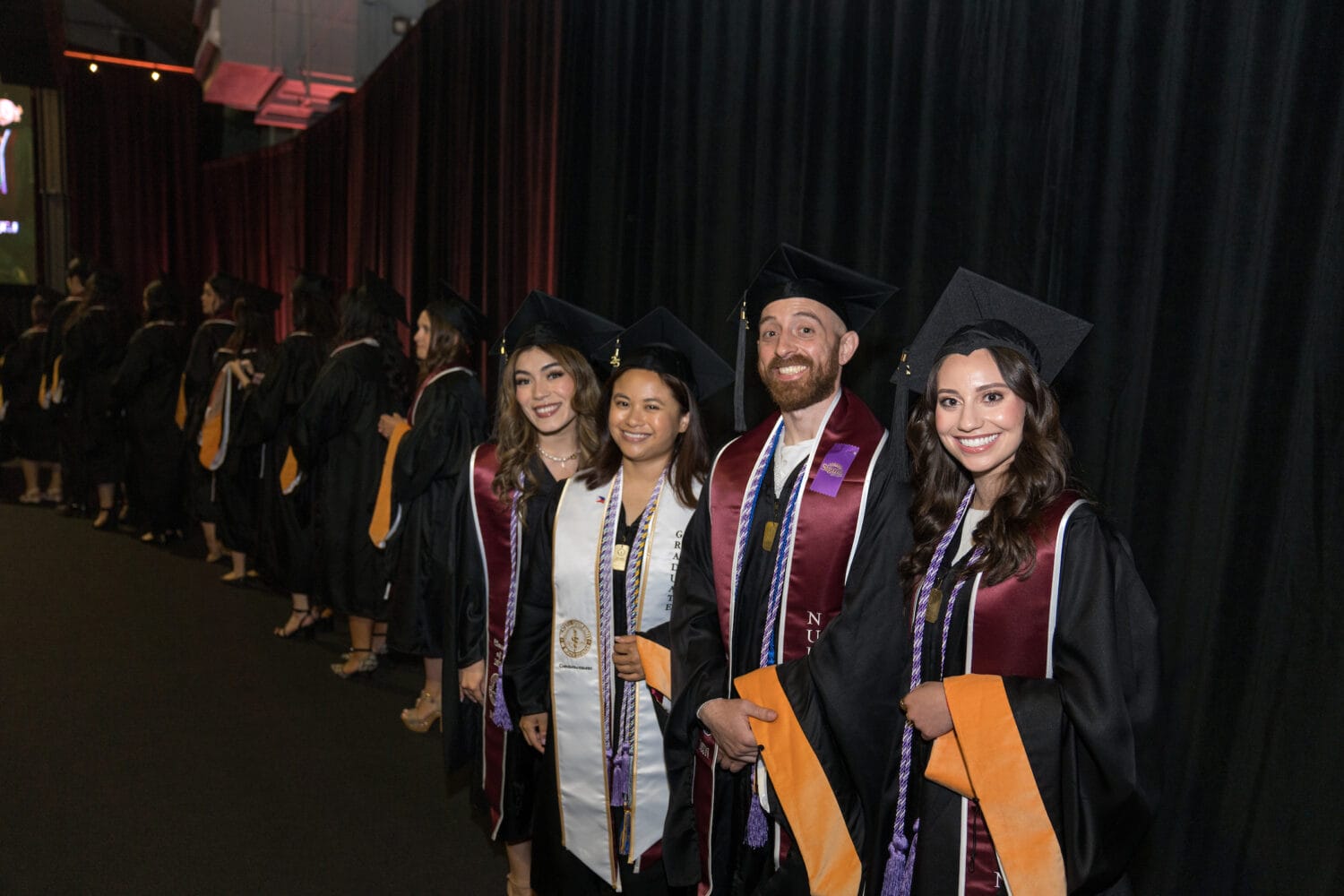Nursing Enrollment Up
Innovative programs and targeted outreach have resulted in tremendous growth in enrollment for the College of Graduate Nursing (CGN), especially in the Family Nurse Practitioner program.
The FNP program will have 60 new students this year, a significant increase from 28 new students last year, said Mitzi McKay, CGN assistant dean of student affairs. One major reason is recruiting.
“We really increased our visibility and outreach to hospitals and clinics,” said Eva Badouin, assistant director of student services. “One of the best ways to recruit the working adult – a lot of our students already have their RN license – is to perform outreach at their places of employment.”
Associate Professor Sally Morgan, MSN, RN, visits hospitals and talks to prospective students about what to consider when advancing their nursing education. She tells them to find a good fit and to match their needs and situation with the proper program, whether it’s at WesternU or another school.
“We have nurses in our programs who are heads of departments and clinics, and (are) night supervisors. They’re leaders already, and they are just finding that advancing their education enhances their ability to do a much better job,” Morgan said. “It’s to prepare nurses to be on an even playing field with other health care team members.”
Ashley Brooks, who is nearing completion of the Master of Science in Nursing/Family Nurse Practitioner (MSN/FNP) program, said the FNP certificate provides diverse career options, and WesternU’s program in particular has a nice mix of online learning and hands-on seminar weekends.
“You can do acute care, primary care, pediatrics or geriatrics. It’s not so specific that you get locked into one thing for the rest of your life,” she said.
The Institute of Medicine of the National Academies’ 2010 report, “The Future of Nursing: Leading Change, Advancing Health” concluded that nurses should achieve higher levels of education and training through an improved education system that promotes seamless academic progression. Nurses should be full partners with physicians and other health care professionals in redesigning health care in the U.S., the report asserted.
“If you want your profession to grow, you need to have people who are continuing to enhance and improve their education,” Brooks said. “You can’t stop learning.”
Angela Coaston, who is also completing the MSN/FNP program, said she joined the program because she wanted to have a direct impact on patients’ lives. Going from a bachelor’s degree nurse to an advanced practice nurse, she has gained additional insight into evidence-based practice.
“It puts you over the top as far as the knowledge and to know what interventions actually improve results,” she said. “As you grow in knowledge through education, you really can provide better information to your patients. A bachelor’s degree opens the door to understanding (that) your patient is more than just a number. They’re part of a community.
Then, moving into the advanced practice nurse, you look at what you can do to improve that person and that community. It keeps getting bigger and bigger.”
The college’s innovative web-based program is also a factor in attracting prospective students in greater numbers. The MSN/FNP program combines distance learning with two weekend seminars per semester on campus and clinical experiences in the students’ communities. The college’s distance learning program attracts working nurses because they are able to take classes without leaving their work and family, said Diana Lithgow, PhD, MSN, FNP-C, CGN Assistant Dean of Distance Learning.
“They already have a commitment to family, community and job,” Lithgow said. “We are able to accommodate the adult learner in a way traditional programs are not able.”



